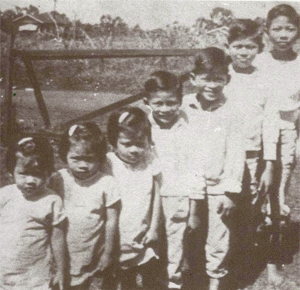Remembering Pearl Harbor: Edward Chun
— Submitted by Edward H. L. Chun (UH Mānoa, BA, 1952, MS, 1954; Harvard University, PhD, 1958)
First is an excerpt of an article in the Spring 1998 issue of the Oral History Recorder, which describes my brother Richard’s experiences in Schofield Barracks and Wheeler Field that fateful morning.
- “Making something” ‒ Oral History Recorder, spring 1998 issue
Family Recollections of the December 7, 1941 attack
Richard Chun mentioned in his interview some events happening at his home at 1129 Auwai Drive, Wahiawa, Oahu. The information on the Wahiawa attack was obtained from siblings who observed the attack.
Richard’s current surviving siblings, Grace, George, Edward and Virginia remembered that fateful day of the attack at our home in Wahiawa. As an eyewitness of the attack in Wahiawa, I, Edward Chun, have collected our stories and have written about our experience as follows:
On Dec. 7, 1941, the Chun Family was composed of our widowed mother and her thirteen children. Most of the family was still asleep when George, age 9, on the back porch spotted planes dropping bombs onto Wheeler Field about a mile and half away. Soon I, Edward, age 11, joined George and viewed the bombing. I also saw the planes circling and dropping their bombs onto the airfield. George roused everyone out of bed and told us what he had seen. At the time we didn’t realize that we were at war. Planes from Wheeler Field often conducted simulated aerial engagements; we thought that it was quite unusual to see bombs dropping.
After the bombing stopped, the family had breakfast. We ate rice with island hotdogs (the ones with the red skin). By then, an hour or so later, we heard aircrafts in the area towards the front of the house. We saw a dog fight. Eldest brother Henry recognized the
Japanese insignia on the plane’s wing. Then he chased all of us into the house, ordering us to hide under the bed. The mattress offered us protection from the bullets. Two-year old Virginia remembered crawling under the bed.
After the planes had gone we saw a round bullet hole just above the rear windshield of my brother Alfred’s 1934 Ford. Later we found a bullet in the garage and a dent in the concrete floor.
According to Grace, Henry found a bullet around the front steps, with a dent on one of the steps. We approached our neighbor, Captain Flaigg, a physician, who didn’t believe that the Japanese planes were attacking us, even as we showed him the bullet. He left with the bullet for Schofield Barracks where he worked. He didn’t return home for several days.
After the second attack the radio stations resumed their broadcasting. The announcer said, “Enemy planes have attacked Hawai‘i. All Pearl Harbor employees are to report to work immediately.” Brothers Arthur and Alfred had to drive about 20 miles to Pearl
Harbor. They did not return home for several days because of the blackout.
Finally, close to noon, we saw our beloved brother Richard returning home intact. He told us of his harrowing experience in Schofield Barracks and Wheeler Field as the enemy planes attacked the military installations and planes. Some planes strafed the golf course where our cousin Stanley Luke was caddying. Afterward, Richard inspected the roof and determined that some bullets may have hit the shingles.
Throughout the night I was frightened by the sound of gunfire. I was worried that any one of the three tall towers of the Wireless Station in the back of our house would be hit and fall onto our house.
Since we were under martial law, we had to be I.D.’d and received typhoid, paratyphoid and dengue fever shots. Everyone had to wear gas mask. Virginia, 2 years old, had to wear a smaller bunny mask. The odor from the mask was too strong for her, so she joined the rest of her siblings in wearing a normal mask, modified with foam rubber to fit her head tightly.
Our lives had changed drastically. Instead of knowing the predictable, now we had to endure blackouts, gas rationing, food shortages and other hardships. We didn’t know what our future held.
George Chun’s account of the December 7, 1941 attack
Photo: Seven youngest siblings, circa 1941. From right: Alexander (13), Edward (11), George (9), Frederick (7), Irene (5), Charlene (3), Virginia (2).
 On the morning of December 7, 1941, I was the first person to get up. I wanted to read the “funnies” in the Sunday paper that included “Tarzan”, “Little Orphan Annie”, etc. However, the newspaper was not on the front porch so I went to the back porch where I saw airplanes, one each following the others. The unusual thing was that these planes were dropping bombs on Wheeler Field about a mile and a half away. After seeing the third bomb I hurriedly ran into the house to rouse the thirteen other family members. From the front porch they could see a huge black column of smoke rising over the trees.
On the morning of December 7, 1941, I was the first person to get up. I wanted to read the “funnies” in the Sunday paper that included “Tarzan”, “Little Orphan Annie”, etc. However, the newspaper was not on the front porch so I went to the back porch where I saw airplanes, one each following the others. The unusual thing was that these planes were dropping bombs on Wheeler Field about a mile and a half away. After seeing the third bomb I hurriedly ran into the house to rouse the thirteen other family members. From the front porch they could see a huge black column of smoke rising over the trees.
Later we saw more planes flying, some not far from our housetops. We waved innocently at the pilots as the planes flew over us while their airmen continued firing their machine guns. I remembered seeing the stream of bluish smoke coming from one machine gun from the front of the plane. At some point our eldest sister Louise screamed when a ball of fire that had just bounced in our yard, was headed towards the schoolhouse. There was a report later that an incendiary bomb penetrated the principal’s office, causing minor damage. The noise from the planes was very loud as the pilots were flying very low. The attack continued overhead.
Behind our home was a complex that occupied a greater part of a block. The complex included three large towers of the Wireless Station for trans-Pacific communications with ships, several houses, many varieties of avocado trees and the local Mutual Telephone
Company’s office. We realized at the time that the Wireless Station was a likely target for the enemy.
At this point, my eldest brother Henry, having recognized the Japanese insignia on the plane’s wing, ordered us back into the house and hide under the beds. After a few minutes, it became quiet as the planes left. We discovered that shots had hit our concrete front steps and my brother’s car. There were pockmarks on the asphalt road. After a while small black puffs of smoke were seen over the skies. We thought we were seeing a real show. Days later, Henry found out that an American plane had shot down a Japanese plane.
We had as neighbors, Major Flaigg, M.D. and his wife; and the Sergeant Palmer Bagwell family that included his wife, Lillian and daughter Olga. Neither army man knew that we were witnessing the beginning of World War II.
After the attacks, Louise went into the house to listen to the radio. She heard exciting news. The radio station, having shut down to prevent the enemy from using it as a beacon during the attack, returned to the air. The announcer was shouting, “Take cover!
Take cover! Be calm. We are being attacked by the planes of the Land of the Rising Sun.” I don’t remember his saying Japan.
The radio announced that all Pearl Harbor employees were to report immediately to work. Both brothers, Arthur and Alfred, had to report to work, about 20 miles away. Because of the blackout, they could not drive back to Wahiawa at night. We didn’t see them for several days. Soon car headlights were partially covered with visors, deflecting light toward the ground, so night driving was possible during the blackout period.
The Chun Family siblings, Grace, Richard, Edward, George and Virginia, collaborated to this Family Recollection of December 7, 1941. Thanks to Warren Nishimoto for permission to use excerpts from the Oral History Recorder article on Richard H. Y. Chun.
